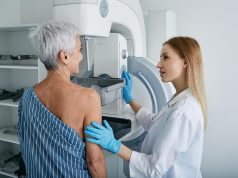Benefits for primary prevention of CVD, CRC for certain adults aged 50 to 69 years
MONDAY, April 11, 2016 (HealthDay News) — The U.S. Preventive Services Task Force (USPSTF) recommends aspirin use for primary prevention of cardiovascular disease (CVD) and colorectal cancer (CRC) in certain adults aged 50 to 69 years, but not in younger or older adults. These findings form the basis of a recommendation statement, published online April 11 in the Annals of Internal Medicine.
Albert L. Siu, M.D., M.S.P.H., from the USPSTF, and colleagues reviewed the literature to update the 2009 recommendations relating to the combined benefits and harms of taking aspirin for primary prevention of both CVD events and CRC.
The researchers recommend low-dose aspirin for adults aged 50 to 59 years with a ≥10 percent 10-year CVD risk, without elevated bleeding risk, who have a ≥10 year life expectancy, and who are prepared to take aspirin daily for ≥10 years (B recommendation). For adults aged 60 to 69 years, the decision to initiate aspirin for primary prevention should be an individual one (C recommendation). The current evidence is insufficient to weigh the balance of benefits and harms of aspirin for primary prevention in adults aged younger than 50 years and age 70 years or older (I statements)
“Before starting to take aspirin for primary prevention, people aged 50 to 69 should talk to their primary care clinician to understand their risk of cardiovascular disease and risk for bleeding,” USPSTF chair Kirsten Bibbins-Domingo, Ph.D., M.D., said in a statement.
Recommendation Statement
Evidence Review 1 (subscription or payment may be required)
Evidence Review 2 (subscription or payment may be required)
Decision Analysis (subscription or payment may be required)
Copyright © 2016 HealthDay. All rights reserved.








